
Exploring the Nutritional Benefits of All Dairy Products: What Recent Studies Reveal
Recent studies have increasingly highlighted the extensive nutritional benefits of all dairy products, showcasing their vital role in promoting health and well-being. According to the National Dairy Council, dairy products are rich in essential nutrients such as calcium, vitamin D, and high-quality protein, which are crucial for bone health and muscle development. A report from the International Dairy Federation revealed that increased dairy consumption is linked to a lower risk of osteoporosis and hypertension. Furthermore, data from the U.S. Department of Agriculture indicates that individuals who consume all dairy products are more likely to meet their daily nutrient needs compared to those who avoid dairy. This growing body of evidence underscores the importance of incorporating all dairy products into a balanced diet, not only for individual health benefits but also for the overall public health landscape. As we delve deeper into recent research findings, it becomes clear that all dairy products offer a unique blend of nutrients that can significantly contribute to improved dietary patterns and enhanced health outcomes.
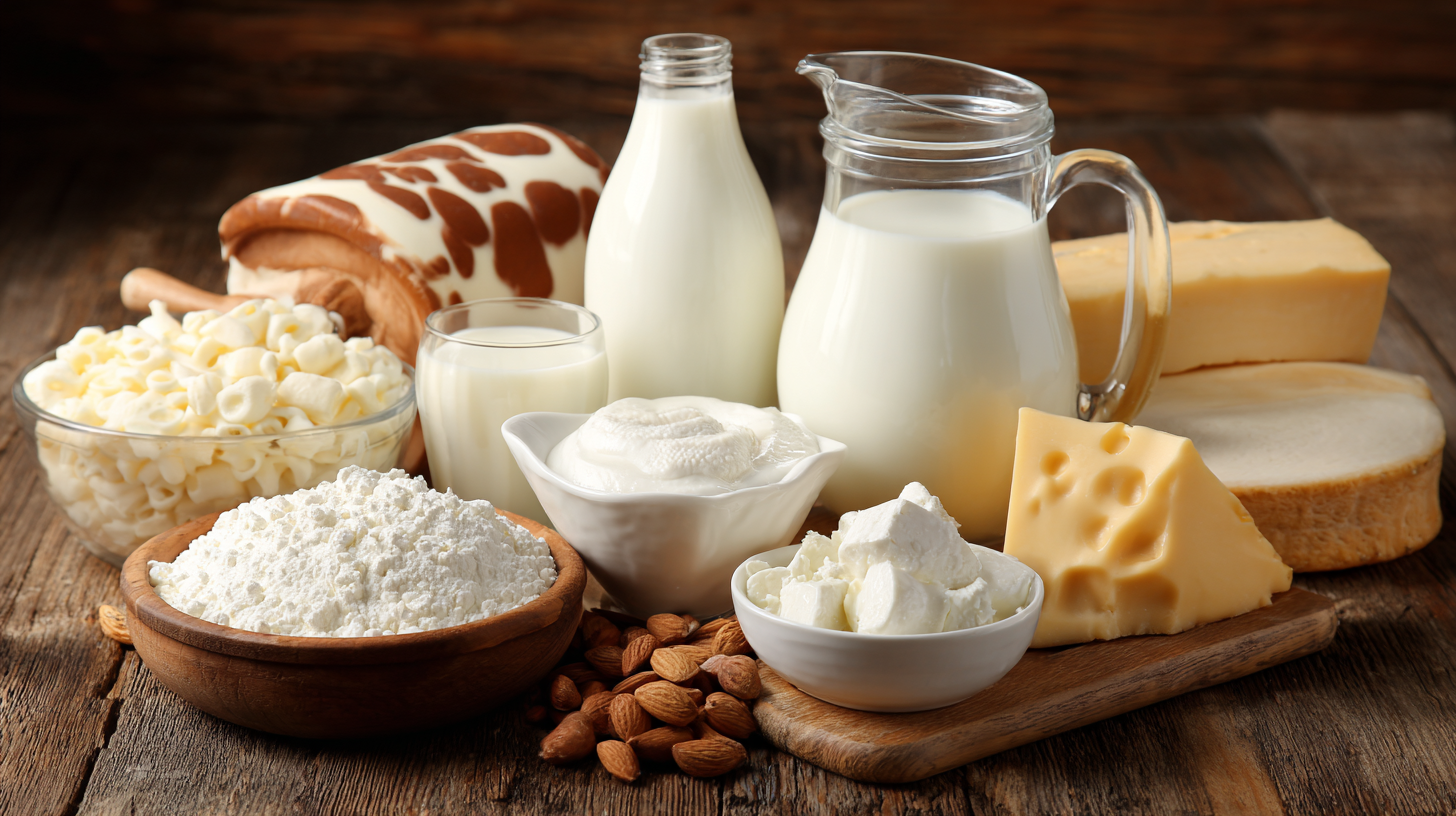
Overview of Dairy Products and Their Nutritional Profiles
Dairy products are a cornerstone of many diets worldwide, offering a range of nutritional profiles that contribute significantly to overall health. From milk and cheese to yogurt and ricotta, these foods are rich in essential nutrients such as calcium, protein, B vitamins, and probiotics. Recent studies have highlighted the different nutritional benefits of various dairy products. For instance, cottage cheese is recognized not only for its high protein content but also for its potential role in weight loss, making it a popular choice among health-conscious consumers. Greek yogurt, on the other hand, is celebrated for its creamy texture and its beneficial bacteria that support gut health.
The increasing awareness of dietary impacts on health has led to a focus on dairy’s role in addressing metabolic risk factors, particularly in regions experiencing rapid dietary changes, like India. The ICMR–INDIAB survey indicates that traditional food sources like dairy may provide vital nutrients that can help combat the rising incidence of cardiometabolic diseases. Furthermore, advancements in technology, including the use of AI in the dairy industry, are facilitating the development of innovative products that cater to diverse dietary needs, such as lactose-free options. These developments underscore the importance of understanding and embracing the nutritional profiles of all dairy products for enhanced health and well-being.
Exploring the Nutritional Benefits of All Dairy Products
| Dairy Product | Calories (per 100g) | Protein (g) | Fat (g) | Calcium (mg) | Vitamin D (IU) |
|---|---|---|---|---|---|
| Whole Milk | 61 | 3.2 | 3.3 | 113 | 1 |
| Greek Yogurt | 120 | 10 | 5 | 110 | 10 |
| Cheddar Cheese | 402 | 25 | 33 | 721 | 0 |
| Low-Fat Yogurt | 60 | 4.5 | 1.5 | 150 | 90 |
| Cottage Cheese | 98 | 11 | 4.3 | 83 | 0 |
Key Nutritional Components Found in Various Dairy Products
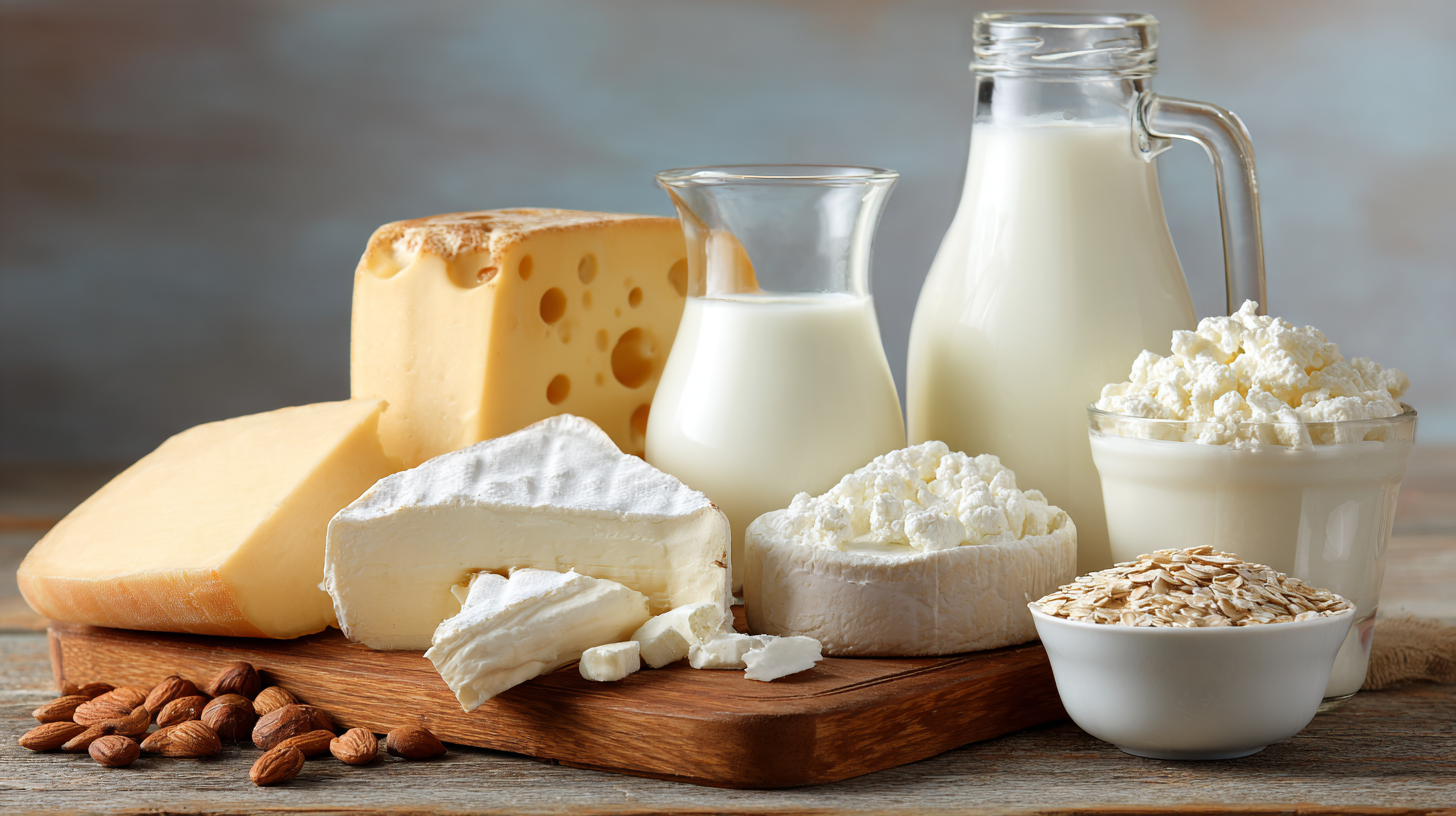 Dairy products are rich in essential nutrients that contribute significantly to our overall health. Key nutritional components found in various dairy products include calcium, protein, vitamin D, and probiotics. Calcium is vital for maintaining strong bones and teeth, while protein plays a crucial role in muscle repair and growth. Vitamin D works synergistically with calcium to enhance bone health, and probiotics support digestive health by promoting a healthy gut microbiome.
Dairy products are rich in essential nutrients that contribute significantly to our overall health. Key nutritional components found in various dairy products include calcium, protein, vitamin D, and probiotics. Calcium is vital for maintaining strong bones and teeth, while protein plays a crucial role in muscle repair and growth. Vitamin D works synergistically with calcium to enhance bone health, and probiotics support digestive health by promoting a healthy gut microbiome.
To make the most of the nutritional benefits of dairy, consider incorporating a variety of dairy products into your diet. Choose low-fat options like yogurt and milk, which provide the same essential nutrients without excess saturated fats. Additionally, try adding fermented dairy products like kefir or yogurt, which are rich in probiotics and can aid digestion.
For those who are lactose intolerant, lactose-free dairy options are available and equally nutritious. Alternatives like almond or soy milk can also offer dairy-like benefits, especially when fortified with calcium and vitamin D. Remember, moderation is key, so aim for balanced consumption to reap the full health benefits of dairy products.
Recent Research Findings on Health Benefits of Dairy Consumption
Recent research findings have shed light on the numerous health benefits associated with dairy consumption. According to a report from the National Dairy Council, dairy products are rich in essential nutrients, including calcium, vitamin D, and high-quality protein, which are crucial for bone health and muscle function. A meta-analysis published in the American Journal of Clinical Nutrition suggests that regular intake of dairy can reduce the risk of osteoporosis and improve peak bone mass in children and adolescents. Furthermore, studies indicate that dairy consumption is linked to a lower risk of cardiovascular disease, as it can help manage blood pressure levels due to its potassium content.
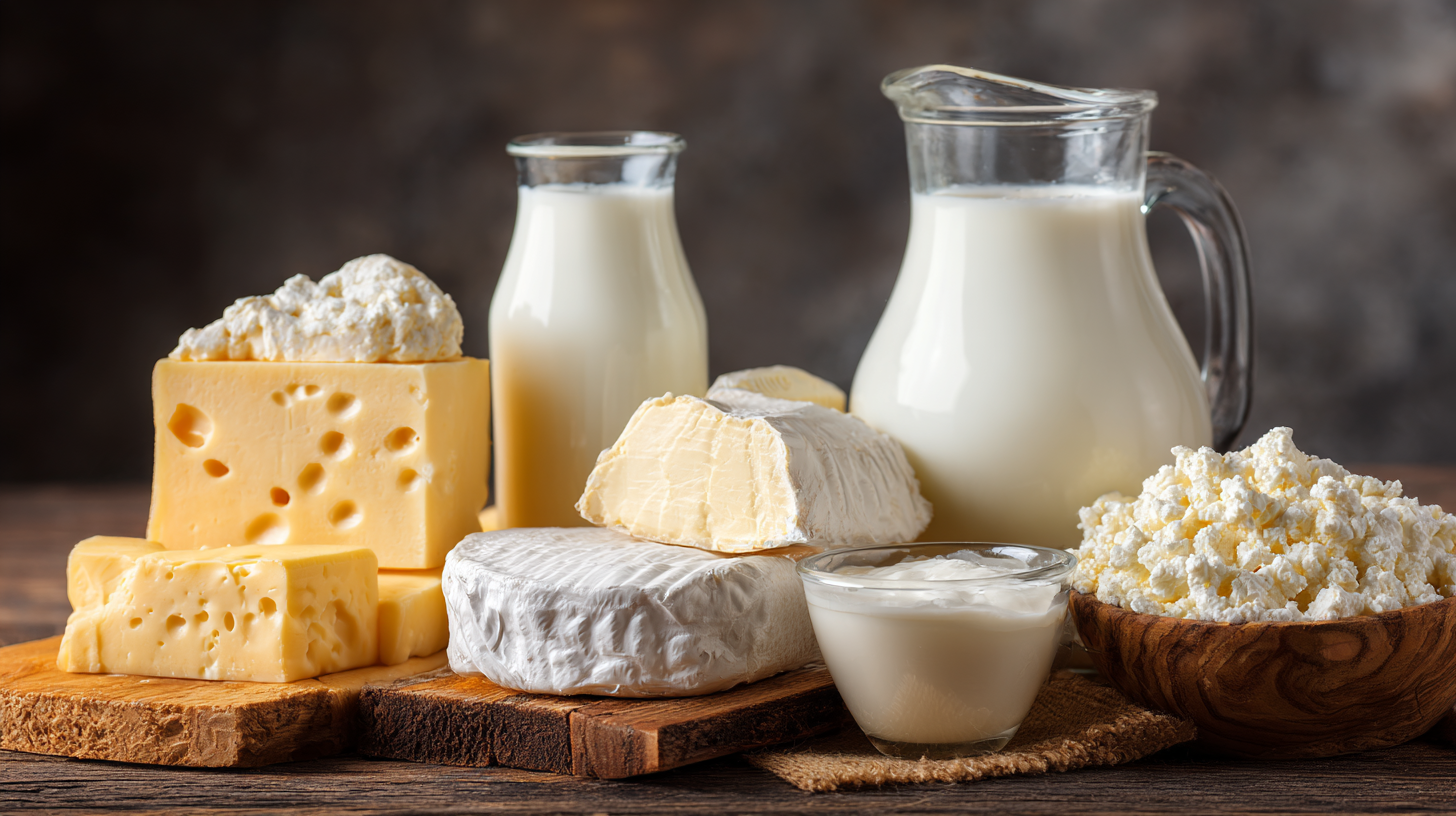
Tip: Incorporating a variety of dairy options, such as yogurt, cheese, and milk, can help ensure intake of a wide range of nutrients.
Additionally, the role of probiotics found in fermented dairy products has been highlighted in recent studies, showing potential benefits for gut health and immune function. Research from the Journal of Nutrition emphasizes that probiotics can enhance the gut microbiome, leading to improved digestion and a stronger immune response. This showcases the importance of choosing dairy products that are enriched with live cultures.
Tip: Look for labels that mention "live and active cultures" to maximize the probiotic benefits of dairy.
Potential Risks and Considerations of Dairy Products in Diets
The recent studies on dairy products have unveiled a complex relationship between their consumption and various health risks. According to research from Harvard University, consuming more than 3.5 cups of milk weekly may increase the risk of liver cancer by up to 45%. Additionally, high-fat dairy products have been associated with higher mortality rates from chronic liver diseases, indicating a potential health risk that warrants attention. On the contrary, low-fat dairy products and yogurt appear to offer a protective effect, potentially mitigating some of these risks through mechanisms involving insulin-like growth factor (IGF).
**Tips:** When incorporating dairy into your diet, consider opting for low-fat or fermented options like yogurt, which may provide health benefits without the associated risks. Moderation is key; aim to limit high-fat dairy consumption and be mindful of your overall dairy intake. Understanding your body's specific responses to dairy can further help in making informed diet choices, especially if there is a family history of cancer or other related health issues.
Exploring the Nutritional Benefits of All Dairy Products
This chart illustrates the nutritional scores of various dairy products based on their nutrient density and overall health benefits. Higher scores indicate greater nutritional benefits associated with each product.
Comparative Analysis of Dairy Products Versus Non-Dairy Alternatives
The ongoing debate between dairy products and non-dairy alternatives has gained momentum, especially as consumers become more health-conscious. Recent studies highlight that traditional dairy products, such as milk, yogurt, and cheese, offer essential nutrients like calcium, vitamin D, and high-quality protein. For instance, the National Dairy Council reports that an 8-ounce glass of milk provides about 30% of the daily recommended intake of calcium, which is crucial for bone health. In contrast, many plant-based drinks often contain lower concentrations of these nutrients, prompting some health experts to recommend fortified options to close the gap.
On the other hand, a comparative analysis by the International Dairy Federation shows that while dairy products may have a nutritional edge in certain areas, non-dairy alternatives like almond and soy milk are favored for their lower calorie content and improved digestibility. The Plant-Based Foods Association notes that sales of non-dairy milk have surged by 20% over the past year, indicating a growing preference among consumers who may be lactose intolerant or seeking vegan options. Yet, the importance of thorough product labeling can’t be overstated, as many non-dairy alternatives lack the protein levels found in cow’s milk, making it essential for consumers to make informed dietary choices based on complete nutritional profiles.
Related Posts
-
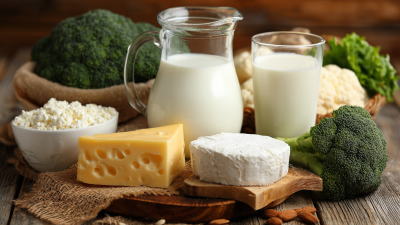
Discover the Best Dairy Products Online for a Healthier Lifestyle
-

Unlocking the Secrets of Dairy: How Milk Transforms Nutrition and Wellness
-
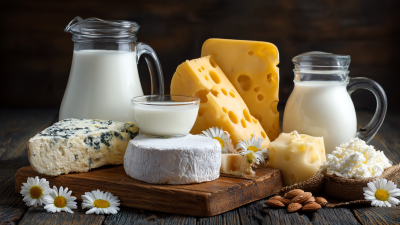
The Surprising Health Benefits of Incorporating Dairy Products into Your Daily Diet
-

Exploring Sustainable Products of Dairy Farming and Their Impact on Global Nutrition
-

Essential Dairy Barn Equipment Upgrades for Modern Farming Efficiency
-

Exploring the Health Benefits of Consuming Diverse Milk Products in Your Daily Diet
